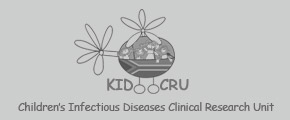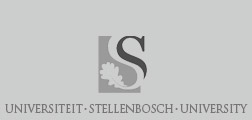CAB
KID CRU - Community Advisory Board
est. 21/05/03
Mission Statement - "To empower the people with knowledge to make informed decisions"
CAB Background
It is situated in Tygerberg Hospital and administrated by the University of Stellenbosch. After attending the Winter Meeting in Washington and meeting other CAB-members in December 2002, the need for a CAB at our site became very evident.
In January 2003, PACTG sent a group of people to come and assess our site. Eva Powel (an international CAB member) was one of them and we used the opportunity to set up a meeting with potential CAB-members. We invited people from the clinic as well as out of the community. We had an attendance of about 20 people of which 4 indicated that they are interested to join a CAB. After several interviews with potential CAB-members, we had 8 people who were interested and we set up a training program for them to get them ready as CAB-members.
Training
• HIV / AIDS - Awareness
• Basic Counseling:
1. Attitude of counselors towards themselves and their clients
2. Basic skills in communication
3. Counseling skills and process
4. Counseling for specific issues (HIV/AIDS, grief, etc.)
5. Counselor's burnout prevention
6. Pre-/Post test counseling
• Research / clinical trials
• Public Exposure
• Protocols
• The role of the CAB member
• Informed Consent
• Disclosure
• How to use training opportunities
• Confidentiality
• Legal Aspects
The CAB was officially started on the 21st May 2003. We had 12 people present for that meeting. The CAB-members also had the opportunity to introduce themselves to other CAB-members internationally via a conference call. Meetings are being held once a month as the group feel they want to meet frequently to keep everybody motivated.
Attendance rate is between 50 - 100 % for meetings and between 70 - 100% for training.
Activities
The group is divided in smaller working groups of 2 or 3. They will come in on clinic days to talk to parents in the waiting rooms. Also to give emotional support when necessary and to discuss questions from the Principle investigator.
Examples of questions
Would the DOTS program be acceptable?
Will the patients have a problem with it?
Can it work with Antiretroviral therapy?
What are their feelings about the different protocols?
They also give input as to what will work in their communities and what will not be acceptable. It is a fact that the community needs research and research needs the community.
TOGETHER WE CAN MAKE A DIFFERENCE!


